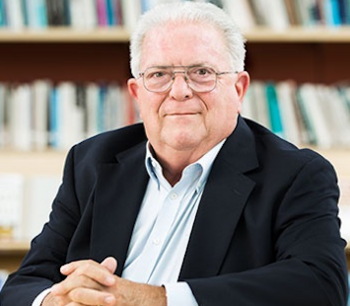On Hostile Coexistence with China
On Hostile Coexistence with China
Friday, May 3, 20194:30 PM - 6:00 PM (Pacific)
Encina Hall, Third Floor, Central, C330
616 Jane Stanford Way, Stanford, CA 94305
WE HAVE REACHED VENUE CAPACITY AND ARE NO LONGER ACCEPTING RSVPS
President Trump’s trade war has infected every domain of Sino-American relations. For better or ill, Washington appears poised to dismantle China’s interdependence with the American economy, limit its role in global governance, counter its investments, and block its technological advances. How and on what terms will this end? The answer will depend on the capacity of the United States and China for statecraft and the effectiveness of each in raising its competitiveness. What challenges might hostile Sino-American coexistence entail for each nation? Which country is best positioned to develop the steadiest strategies, most purposive economic policies, and the most supportive relations with other states?

Ambassador Chas W. Freeman, Jr. is a senior fellow at Brown University's Watson Institute for International and Public Affairs. He is the former assistant secretary of defense for international security affairs (1993–1994), ambassador to Saudi Arabia (1989–1992), principal deputy assistant secretary of state for African affairs (1986–1989), and chargé d'affaires at Bangkok (1984–1986) and Beijing (1981–1984). He served as vice chair of the Atlantic Council (1996-2008); co-chair of the United States China Policy Foundation (1996–2009); and president of the Middle East Policy Council (1997–2009). He was the principal American interpreter during President Nixon's path-breaking 1972 visit to Beijing, the editor of the Encyclopedia Britannica article on diplomacy, and the author of America’s Continuing Misadventures in the Middle East; Interesting Times: China, America, and the Shifting Balance of Prestige; America’s Misadventures in the Middle East; The Diplomat’s Dictionary; and Arts of Power: Statecraft and Diplomacy. A compendium of his speeches is available at chasfreeman.net.
This event is part of the China Program’s Colloquia Series entitled "A New Cold War?: Sharp Power, Strategic Competition, and the Future of U.S.-China Relations " sponsored by Shorenstein APARC's China Program.
A New Cold War?: Sharp Power, Strategic Competition, and the Future of U.S.-China Relations

Trade conflict has exploded. The media is rife with stories of China’s unfair trade practices, cyber theft, IP theft and forced technology transfers. Who will first scale the commanding heights of technological supremacy? Who will be the first mover in AI, robotics and biotechnology? What are the implications of Beijing’s ambitious infrastructure projects, including its Belt and Road Initiative? How is China’s “sharp power” deployed, and what are its implications for political and civic life in the U.S.? Can the Trump administration and Beijing’s leadership reach agreement on our trade disputes? Are these just the beginning salvos of an increasingly turbulent future? As U.S. policy towards China sharply veers away from “constructive engagement” to “strategic competition,” the Stanford China Program will host a series of talks by leading experts to explore the current state of our bilateral relations, its potential future, and their implications for the world order.
